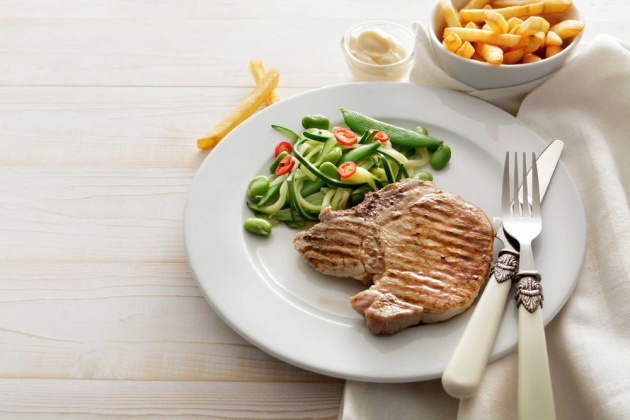1. Write down what you eat for one week and you will lose weight. Studies found that people who keep food diaries wind up eating about 15 percent less food than those who don’t. Watch out for weekends: A University of North Carolina study found people tend to consume an extra 115 calories per weekend day, primarily from alcohol and fat. Then cut out or down calories from spreads, dressings, sauces, condiments, drinks, and snacks; they could make the difference between weight gain and loss.
2. Add 10 percent to the amount of daily calories you think you’re eating. If you think you’re consuming 1,700 calories a day and don’t understand why you’re not losing weight, add another 170 calories to your guesstimate. Chances are, the new number is more accurate. Adjust your eating habits accordingly.
3. Get an online weight loss buddy to lose more weight. A University of Vermont study found that online weight-loss buddies help you keep the weight off. The researchers followed volunteers for 18 months. Those assigned to an Internet-based weight maintenance program sustained their weight loss better than those who met face-to-face in a support group.
4. Get a mantra.
You’ve heard of a self-fulfilling prophecy? If you keep focusing on things you can’t do, like resisting junk food or getting out the door for a daily walk, chances are you won’t do them. Instead (whether you believe it or not) repeat positive thoughts to yourself. “I can lose weight.” “I will get out for my walk today.” “I know I can resist the pastry cart after dinner.” Repeat these phrases and before too long, they will become true for you.
5. After breakfast, stick to water.
At breakfast, go ahead and drink orange juice. But throughout the rest of the day, focus on water instead of juice or soda. The average American consumes an extra 245 calories a day from soft drinks. That’s nearly 90,000 calories a year—or 25 pounds! And research shows that despite the calories, sugary drinks don’t trigger a sense of fullness the way that food does.
6. Eat three fewer bites of your meal,
one less treat a day, or one less glass of orange juice. Doing any of these can save you about 100 calories a day, and that alone is enough to prevent you from gaining the two pounds most people mindlessly pack on each year.
7. Watch one less hour of TV.
A study of 76 undergraduate students found the more they watched television, the more often they ate and the more they ate overall. Sacrifice one program (there’s probably one you don’t really want to watch anyway) and go for a walk instead.
8. Wash something thoroughly once a week.
Whether that’s a floor, a couple of windows, the shower stall, bathroom tile, or your car, a 150-pound person will burn about four calories for every minute spent cleaning. Scrub for 30 minutes and you could work off approximately 120 calories, the same number in a half-cup of vanilla frozen yogurt.
9. Wait until your stomach rumbles before you reach for food.
It’s stunning how often we eat out of boredom, nervousness, habit, or frustration—so often, in fact, that many of us have actually forgotten what physical hunger feels like. If you’re hankering for a specific food, it’s probably a craving, not hunger. If you’d eat anything you could get your hands on, chances are you’re truly hungry. Find ways other than eating to express love, tame stress, and relieve boredom.
10. Sniff a banana, an apple, or a peppermint when you feel hungry.
You might feel silly, but it works. When Alan R. Hirsch, M.D., neurological director of the Smell & Taste Treatment and Research Foundation in Chicago, tried this with 3,000 volunteers, he found that the more frequently people sniffed, the less hungry they were and the more weight they lost—an average of 30 pounds each. One theory is that sniffing the food tricks the brain into thinking you’re actually eating it.
11. Eat 90 percent of your meals at home.
You’re more likely to eat more—and eat more high-fat, high-calorie foods—when you eat out than when you eat at home. Restaurants today serve such large portions that many have switched to larger plates and tables to accommodate them.
12


 Walk before dinner and you’ll cut calories AND your appetite.
Walk before dinner and you’ll cut calories AND your appetite.
In a study of 10 obese women conducted at the University of Glasgow in Scotland, 20 minutes of walking reduced appetite and increased sensations of fullness as effectively as a light meal.



